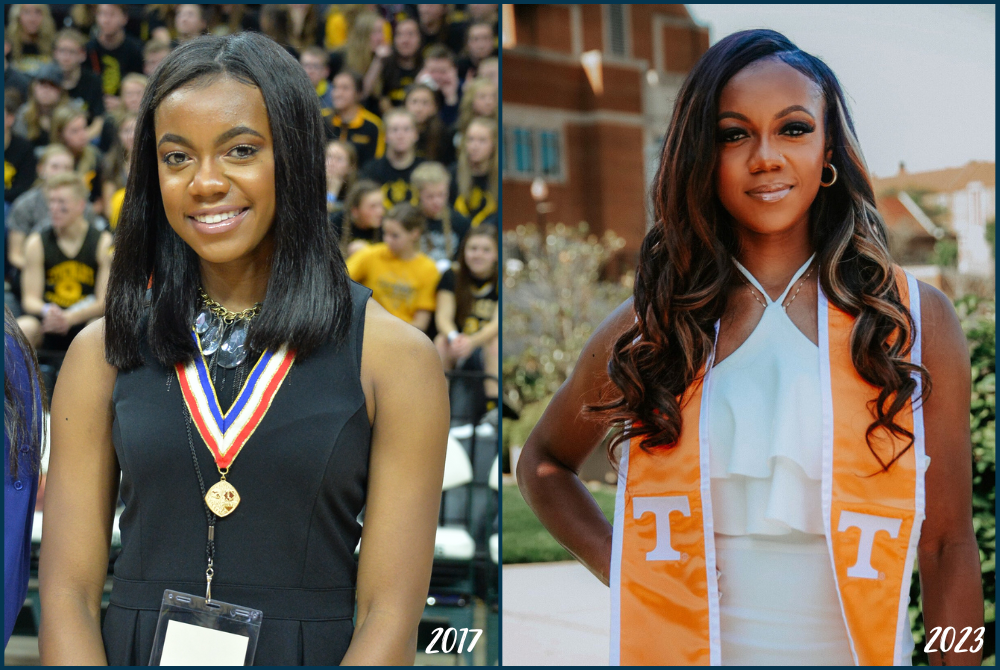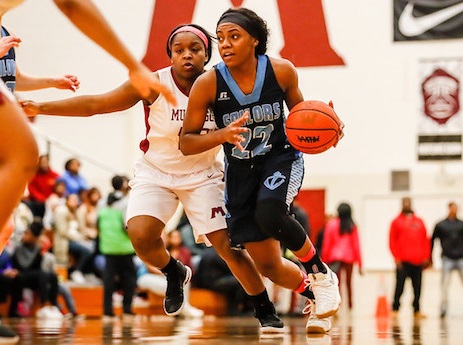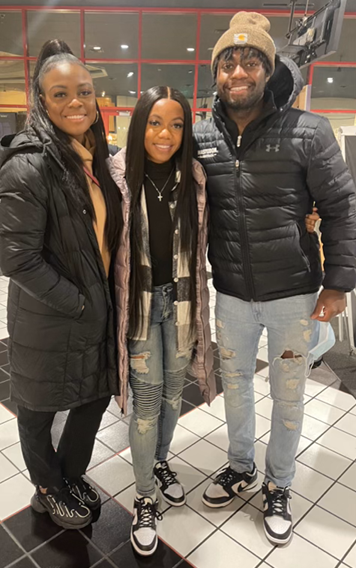
Working Through Transfer Trends
December 2, 2015
By Jack Roberts
MHSAA Executive Director
One of the responsibilities that schools have asked organizations like the MHSAA to execute is the management of transfer student eligibility. Historically, many associations have linked eligibility to residence ... thus, for some the regulation has been called the “Residency Rule” or “Transfer/Residency Rule,” not merely the “Transfer Rule.”
Over the years, as society became more mobile and families less stable, these rules became more and more complicated; and now, for most state high school associations, this is the regulation that consumes the most (or second) most pages of their handbooks. Over the years, this has also been the regulation most frequently challenged in court.
Over the years, some states have relaxed their transfer rule and others have refined their transfer rule. In either case, the transfer rule remains an imperfect rule, an imperfect net. Sometimes this net snags students who should not be made ineligible, and for those situations all associations have arranged some kind of waiver or appeal process.
And sometimes, and much less easily solved, the net fails to catch the situations it really should ... the transfers that are not hardship related or the result of some very compelling educational need, but those that are obviously for athletic reasons. It is those that we have been most focused on in Michigan.
Our first effort to get at the most problematic transfers was the adoption for the 1997-98 school year of what we called the “Athletic-MOTIVATED Transfer Rule” ... Regulation I, Section 9(E). Examples of an athletic-motivated transfer are included in the rule. The rule only applies to transfer students who do NOT meet any of the stated exceptions for immediate eligibility and are ineligible for one semester under our basic transfer rule. They become ineligible for 180 scheduled school days if there is a finding that the transfer was more for athletics than any other compelling reason.
This effort has not been successful enough because it requires a school that loses a student to another school to promptly allege to the MHSAA office, with supporting documentation, that the transfer was more for athletic reasons than any other compelling reason. The receiving school then must respond to those allegations. Then the executive director makes the decision. The unfortunate result of applying this rule is that it usually causes hard feelings between the schools, and hard feelings toward the executive director by the school decided against. In 17 years, schools have invoked this rule only 45 times.
Our more recent effort to address the most egregious athletic transfers resulted from requests from the coaches associations for wrestling and basketball, which were watching too many students change schools for athletic reasons, usually related to an out-of-season coaching relationship. The new rule – the “Athletic-RELATED Transfer Rule” – is Regulation I, Section 9(F). The difference between Section 9(E) and the newer Section 9(F) is that in 9(F) one school does not have to make and document allegations before staff can act. If MHSAA staff discover or are informed of any of the circumstances listed in 9(F), we can act. Again, the rule only applies to those transfer students whose circumstances do NOT meet one of the automatic exceptions. It applies only to students who are ineligible for a semester under the basic transfer rule. If there is a finding that one of the athletic related “links” exists (usually an out-of-season coaching relationship), then this transfer student who would be ineligible for one semester is made ineligible for 180 scheduled school days.
So far, it appears that 9(F) may be a better deterrent than 9(E). It has been referenced when students are rumored to be transferring, and it has stopped many of those transfers before they occur. We expect 9(F) to be an even better deterrent in 2015-16 because the rule has been broadened to apply to administrators and parents (not just coaches) and to address directing and coordinating athletic activities (not just coaching).
We have said that if this latest effort does not succeed in slowing athletic transfers, then the next step is 180 days of ineligibility – at least in any sport the student played in high school previously – for all transfer students who do not qualify for an exception that permits immediate play. I fear that would catch far too many students who should not be withheld so long from competition and could lead to a period like the early 1980s when the MHSAA, at the request of the state principals association, adopted the core of the transfer rule we have today and which resulted in a period of busiest litigation for the MHSAA when, at one time, the association had more than a dozen cases in court simultaneously on transfer matters. We’ve got to make the current rules work – with tweaks, perhaps; but not with radical revision.

Shores Star Walker Continues Drive for Hoops Greatness as College Coach
By
Scott DeCamp
Special for MHSAA.com
August 8, 2024
NORTON SHORES — Dribbling, passing, and shooting are prerequisites for basketball players, and Muskegon Mona Shores alumna Jordan Walker did them quite well.
 But for Walker, determination has been perhaps her most important trait.
But for Walker, determination has been perhaps her most important trait.
It helped her win the Michigan Miss Basketball Award during her senior season in 2017 after suffering an ACL injury prior to her junior year with the Sailors. It’s also allowed her to continue an ascent in the basketball world.
Time-management habits and prioritization have been instilled in all three of Jarvis and Danielle Walker’s three children.
“There’s a special drive with these (Walker) kids,” said Brad Kurth, who was Jasmyn and Jordan Walker’s basketball coach at Mona Shores.
Jordan Walker earned two master’s degrees over six years of college while juggling the demands of being a Division I basketball player at Western Michigan University and University of Tennessee. The 25-year-old’s playing days appear to be finished, but she’s still pursuing her basketball dreams as an assistant coach at the D-I level.
Walker spent the 2023-24 season as a first-year assistant at Mercer University. This March, Mercer head coach Susie Gardner announced her resignation, meaning Walker had to seek opportunities elsewhere.
In typical Walker fashion, she landed on her feet, and it didn’t take long. In May, she was hired as an assistant coach at Jacksonville University. Her responsibilities include player development with point guards, academics, community service, and housing.
“(The Mercer position) kind of fit exactly where I was at perfectly,” Walker said during a break while on the road recruiting for Jacksonville recently. “I was really thankful for that opportunity and thankful for my circle and my village thinking of me at that time and putting my name out there because it honestly was the perfect situation for me.
“At the Final Four, you meet people and you meet a lot of coaches and you network, you build relationships. There was one coach I saw on the road a ton throughout the year and I saw at the Final Four and he knew the situation. At that point, (Jacksonville) didn’t have any openings, and later on it opened up and they gave me a call. At that point, it was getting to the interview and what the position holds and what it would look like. Again, it was another situation that was perfect for where I was at in life and what I wanted to do and the path that I’m on, so it was another no-brainer for me to head to Jacksonville.”
At Mona Shores, the 5-foot-7 guard broke the school’s all-time scoring record — one that stood 22 years — with 1,365 points. During her Miss Basketball season, Walker averaged 22.1 points, 8.5 rebounds, and 5.5 assists per game.
At the collegiate level, Walker amassed more than 1,300 points, 700 rebounds, and 400 assists. In two seasons with WMU (she lost one season with another ACL injury), she started 54 of 64 games and averaged 11.8 points, 4.9 rebounds, 2.2 assists, and 1.8 steals. As a graduate transfer at Tennessee, she started 77 of 96 games and averaged 6.3 points, 4.1 rebounds, 3.0 assists, and 1.1 steals while helping the Lady Vols reach the NCAA Tournament three times.
 According to Walker, the foundation for her success began in the home and in the Mona Shores school community.
According to Walker, the foundation for her success began in the home and in the Mona Shores school community.
“Honestly, my memories with Mona Shores I truly cherish because it’s such a special time, a special place. Playing high school ball, I tell people AAU and high school ball is some of the most fun times that you’ll have playing. Obviously, I enjoyed my college time as well — I did six years,” she quipped. “But I definitely enjoyed my time at Mona Shores. Just the people that were there because it was a truly special place.
“Again, I talk about the village a lot because it does take that and (the) Mona Shores community, they really just poured into me and supported (me) and that’s something that I was always grateful for. Especially my head coach there, Brad Kurth. He did an amazing job with us and preparing us, not only for the games in high school but for the next level as well as far as player development and scouts and going over stuff like that so when I got to college, it wasn’t my first time seeing a scout, it wasn’t my first time doing a film study. Those things I always take with me.”
Of course, with the Walker family, it’s always been books before basketball.
While at Mona Shores, Jordan Walker served on the MHSAA’s Student Advisory Council and earned one of the prestigious MHSAA/Farm Bureau Insurance Scholar-Athlete Awards as a senior; only 32 honorees are selected annually. Walker earned her bachelor’s degree in political science and minor in communications from WMU in 2020, taking only three years. At Tennessee, she completed her first master’s degree in 2022 in business administration (MBA) with a concentration in entrepreneurship and innovation; she finished her second master’s degree in 2023 in the Agricultural Leadership, Education and Communications (ALEC) Department with a concentration on name, image, and likeness (NIL) and women’s leadership.
When Walker suffered the ACL injury at WMU, which sidelined her for a year, it allowed her to get ahead in the classroom. She had 19- and 20-credit semesters that year. In her third and final year at WMU, she was taking 21 credits in a semester.
“Academics in our house was nothing to play around with,” Walker said. “If you didn’t have your academics right — in the summer, if you didn’t finish your workbooks, if you didn’t read your books, you were not playing basketball. Academics were a big thing, and I thank my parents for that because they instilled that at a young age.
“It came down to time management, which kind of goes back to what I was saying about the foundation of your high school and what you do in high school and the habits that you form because that’s ultimately going to carry you throughout college. Of course, you can tweak it and gain new things, but I think Mona Shores did a great job of setting me up academically so that when I got to college, some of the courses that I took, I was able to comprehend at that level and take multiple classes and high-credit semesters and be able to graduate early, which led to me being able to get my (two) master’s (degrees).”
All three of the Walker siblings continue to achieve at a high level on and off the court.
Jasmyn Walker, the eldest of the siblings, was a first-team all-stater at Mona Shores and a Division I basketball player at Valparaiso and Western Michigan. She is in her first season as an assistant coach at George Washington University after previous stops at Purdue-Fort Wayne, Butler, Ferris State and Davenport.
 Jarvis Walker II, the youngest of the siblings, was a first-team all-stater at Muskegon High School and is a graduate student playing basketball for Indiana University-Indianapolis after starting his collegiate career at Purdue-Fort Wayne.
Jarvis Walker II, the youngest of the siblings, was a first-team all-stater at Muskegon High School and is a graduate student playing basketball for Indiana University-Indianapolis after starting his collegiate career at Purdue-Fort Wayne.
The Walker siblings are each other’s biggest fans.
“I’m immensely proud of them,” Jasmyn Walker said. “Jordy and Jay have gone above and beyond to reach their goals. I’ve seen the work they’ve put in, the time invested, and sometimes the lows that come with chasing dreams. They’ve pushed themselves at every turn.”
Jarvis Walker II said that sister Jordan is somebody who will “figure it out no matter the circumstances.”
He believes that each stop along her journey has afforded her great experience and deeper knowledge that will benefit her not only in basketball but in life.
“Grind, grind, grind — she is one of the hardest-working people I know,” he said about his sister. “It has motivated me to be better in every aspect of life from school to basketball and day-to-day interactions and how I go about certain things.”
In many respects, Kurth feels like a proud papa to the Walkers as he’s coached Jasmyn and Jordan and has spent countless hours around the family.
“All three of the kids — I mean, Jarvis, Jordan, and Jasmyn — I could never be prouder of a group of kids,” Kurth said. “You talk about the full package: Basketball is one part, but every single one of them shows academic excellence, every single one of them shows extreme character. Those are things that are timeless. Basketball is a young person’s sport. Coaching you can do a long time, but your playing days are limited. I think I’ve seen a lot of kids sacrifice everything, including their character, including their academics, to do basketball and they shouldn’t. Character should be at the top. These three kids, it’s just matchless.”
Included in Jordan Walker’s long resume is her active participation in leadership programs such as “So You Want To Be a Coach” and “Above the Rim Summit.”
Walker aspires to be a collegiate head coach. She’s doing all she can to keep climbing that ladder.
With her second master’s degree specializing in NIL and that being such a large part of college athletics now, she appears to have a leg up on her competition.
“NIL can look like a bunch of different things, and I think that when choosing a school and what that looks like, make sure that outside of NIL it meets all of your expectations,” Walker said. “Money and brand deals and all of that may look enticing, but still don’t fall on your standards of what your program you want to have has.
“It’s the academics, and if they have your major, and it’s the culture and it’s your relationships with your coaches and your teammates. Make those be your tops and NIL be a plus. I think that that’s the biggest thing.”
2024 Made In Michigan
August 6: MCC's Glover Fills Key Role as Athletic Trainer for Super Bowl Champions - Read
August 1: Lessons from Multi-Sport Experience Guide Person in Leading New Team - Read
July 30: After Successful 'Sequel,' Suttons Bay's Hursey Embarking on Next Chapter - Read
July 24: East Kentwood Run Part of Memorable Start on Knuble's Way to NHL, Olympics - Read
July 22: Monroe High Memories Remain Rich for Michigan's 1987 Mr. Baseball - Read
July 17: Record-Setting Viney Gained Lifelong Confidence at Marine City - Read
July 11: High School 'Hoop Squad' Close to Heart as Hughes Continues Coaching Climb - Read
July 10: Nightingale Embarking on 1st Season as College Football Head Coach - Read
June 28: E-TC's Witt Bulldozing Path from Small Town to Football's Biggest Stage - Read
PHOTOS (Top) At left, Jordan Walker stands with her class on the Breslin Center floor during the 2017 MHSAA/Farm Bureau Scholar-Athlete Awards ceremony, and at right in 2023 after receiving her second master's degree from University of Tennessee. (Middle) Walker makes her move toward the basket during a game her senior season at Muskegon Mona Shores. (Below) Jordan Walker, middle, takes a photo with sister Jasmyn and brother Jarvis. (Graduation and family photos courtesy of the Walker family; Mona Shores basketball photo by Tim Reilly.)

